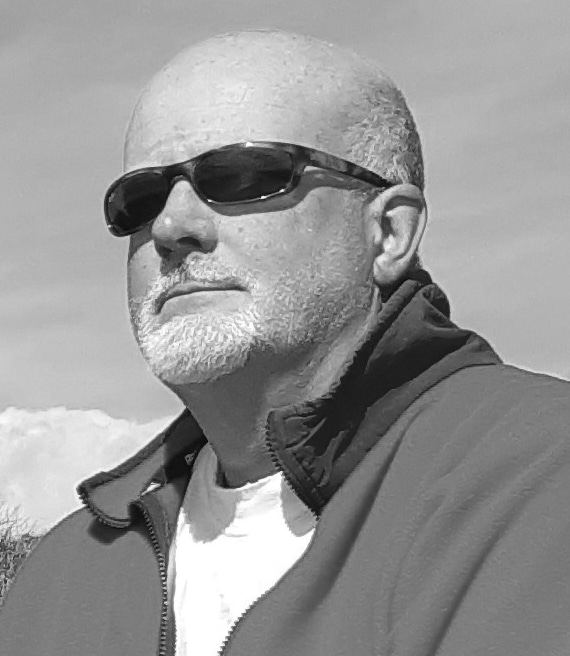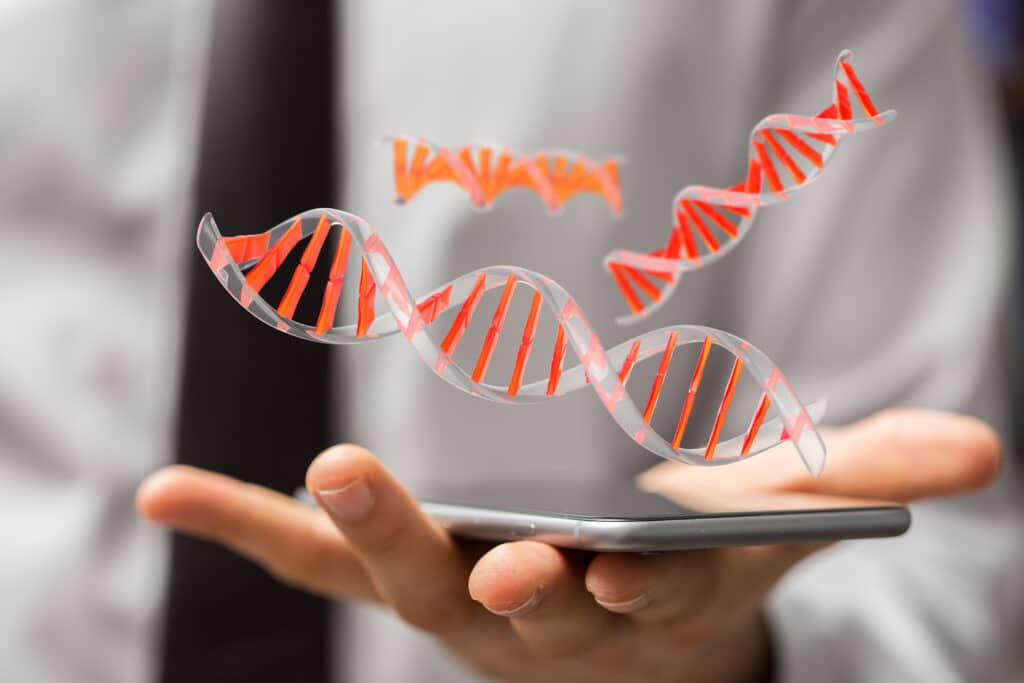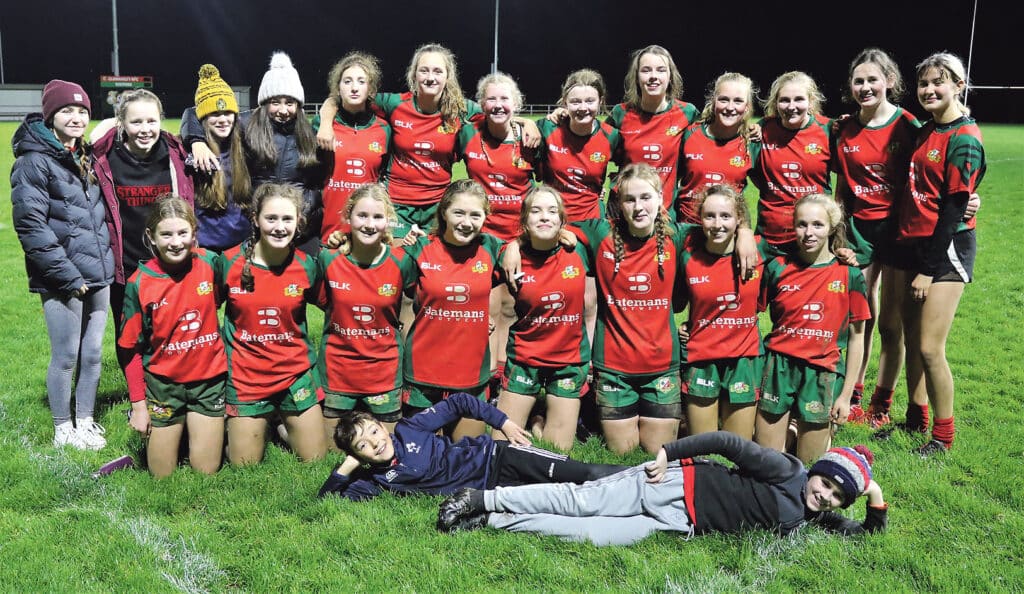
The DNA of West Cork People
Mark Grace is a genetic genealogist and family historian at Ballynoe House, Ardfield, Co. Cork

It does not matter which websites you join for family history or DNA matching; the problem is the same. Even with the most sophisticated sites (where you might expect greater understanding and involvement of members), it is a sad reality that over 99 per cent of users do not respond to any form of correspondence, even if you find them on social media. The Silent Majority.
I have many decades of experience, sending more than 10,000 messages over many platforms. The bottom line is that you should not expect a response but be delighted if you do. As mentioned in the last article, you should include in your testing strategy time to reach out to important matches. It will take time.
I encourage everyone to contact their DNA matches, even though the chance of a reply is small; and to be considerate by responding. The lack of response halts investigations. For the DNA newbie (who has initial enthusiasm) and expert alike, it is the most frustrating aspect of genetic genealogy. I hope this article will provide a wider understanding of the issues involved and allow you to adjust your strategies accordingly.
A recent upgrade to the Ancestry messaging system now shows when messages are delivered and, more importantly, when they are read. Not all systems do this. A review of my most recent 500 messages showed that about 60 per cent were unread after one year. It appears the majority are silent because accounts are dormant, although some are active but they never access their message inbox. Users should also get an email alert that messages have been received. It is possible to switch off messaging, but few do. I do have a couple of important and unexplained DNA matches I simply cannot reach, as they have deactivated messaging.
I know this phenomenon is often mentioned between active members. Many, like me, include in our public profiles that we ‘respond to all messages’. We do not want people to be discouraged, as that is an obvious side effect. It is also important that we thank people for replying and explain why their reply was helpful.
About half of the top 50 matches for all DNA kits I manage are non-responders. This includes people as close as second cousins who share a great deal of DNA with a lot of mutual genetic history. You might think close family would be open to a family DNA project, but that cannot be assumed. You can ask once and send a polite reminder after a few months, but that is all you can do. Opinions do change. In one case, I spent five years discussing DNA sharing with one reluctant cousin who then did share. They were delighted with what I could tell them about their more ancient origins. So much so, that other family members in their branch decided to test and share too.
A couple of years ago, I re-messaged the top one hundred DNA matches on Ancestry who had never responded. It was a straw poll to see if I could elicit a response on why they did not reply to my first approach. Despite the irony of reaching out to non-responders, I got five replies, which included the same answers received from people who did reply and declined to share. Ahead of this article, I also contacted about thirty of these and I am grateful for their detailed responses which have been summarised here.
The primary areas for the lack of response can be categorised as Life, Level of Interest, Technical Understanding and Trust. For the first, Life simply gets in the way. Most people are infrequent users of sites because they are busy or simply forget, even though data sharing takes just a couple of minutes of their time. It is not a significant hobby for them.
Despite hundreds of thousands of users and the popularity of both genealogy and DNA testing there are few high-level users with in-depth knowledge, so the level of interest is low on average. People take DNA tests ‘for a laugh’ or just because it was given as a gift and have no further interest in the detail. Sites do not categorise users level of interest to help find those more open to sharing their data and learning more. Testers with complicated personal and family relationships may not be interested in wider connections and decline to share, even though they may miss out by not collaborating. As I mentioned in the last article, as Ancestry does not provide the necessary matching detail, their results are unverified and not usable for detailed genetic genealogy when not shared.
There are two main types of technical issue. Sites like Ancestry and GEDmatch are hard to navigate and understand for self-confessed technophobes. On top of that, trying to understand what the DNA results mean or simply not knowing what to do next. The importance of and reasons behind verifying matches to prove shared heritage is lost on most. Many reach a mental brick wall at this point, even with the most basic of concepts. A DNA test result is just the start of an adventure into your deepest ancestry and most are surprised by what can be revealed. Many users do not go into their Settings and set up their accounts properly, connecting their DNA to themselves or provide even a rudimentary tree, especially if the family history side is of no interest.
There is also a wider belief that sharing data involves costs when it is free to share to GEDmatch and MyHeritage, as two examples. It is often forgotten that if you have tested but do not subscribe to other services ,you can still log in and review your matches and access your data. You own your DNA file.
Trust is a big one. I keep an active and public profile for my research so that people can know who I am and what I do, and that I am a volunteer collaborator. It builds trust, as confidence across the internet is low, and a primary reason people do not respond. Many consider approaches with offers to share data (even my offers of free help) are suspicious or spam, even though my personal DNA data is publicly available. There are concerns data may be ‘stolen,’ not treated confidentially, or ‘manipulated’ in some way. The issue of privacy and data security is a complicated one with many myths and misunderstandings, so will be discussed separately in a future article.
When reaching out to other people I have found it does not matter if you write a short “Hello” with a request to discuss shared heritage, or you write a full detailed pitch on who you are and why you are making contact. The result is the same. To save your own time, I recommend keeping initial approaches short and to the point. I have a text file with standard wording from various approaches so I can simply copy/paste into any messaging system. It saves a lot of time, especially when I spend more than 90 per cent of my time reaching out to matches rather than analysing results.
For those who wish to keep their research separate from personal email I recommend setting up a Gmail account. It offers an additional level of privacy for test site membership and registrations (which is usually the only personal identifier) and can be suitably opaque in name. Gmail is not subject to email Gateway Blocking which can be a problem (‘message undelivered’) when trying to reach people with Yahoo/AOL addresses and other email providers (such as Sky) who share the same legacy blocking software. This goes back to the days of spambots and indiscriminate blocking by network providers of certain internet routers to reduce the problem. It is frustrating if your business or research domain is on the wrong side of one these gateways. A reliable email address is important.
If you have received a DNA test kit for Christmas, beat the rush for results by sending your kit back promptly. Do not be discouraged. Reach out to your nearest matches when you get your DNA results back. Please, also share the detail to genuine researchers. Despite the frustrations of The Silent Majority, there is so much personal satisfaction receiving the gratitude of someone who has been helped to prove their genetic identity. Look out for some of these stories, in general terms, in future articles.
For any questions that can be answered as part of future articles (email genealogy@creativegraces.net) or follow the West Cork DNA projects (based on my wife’s DNA and that of her genetic cousins) on Facebook ‘My Irish Genealogy & DNA’.


